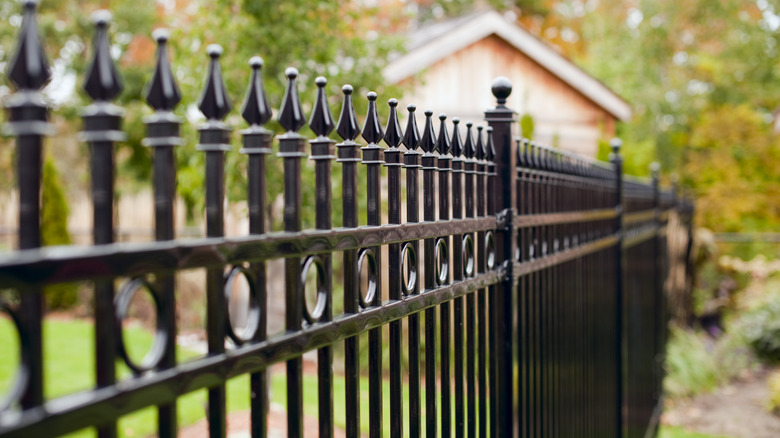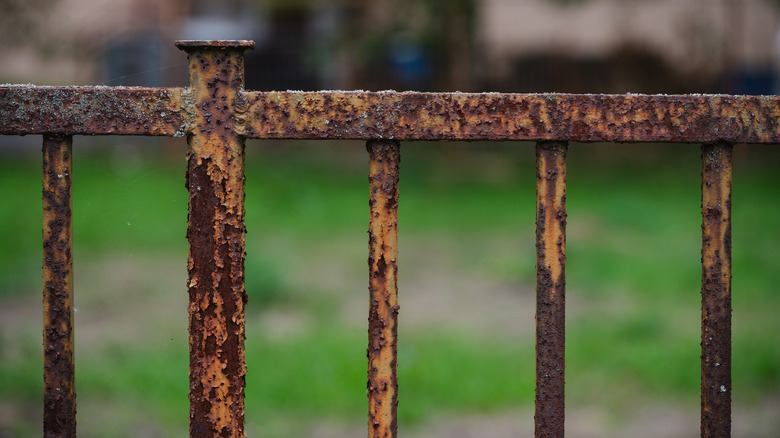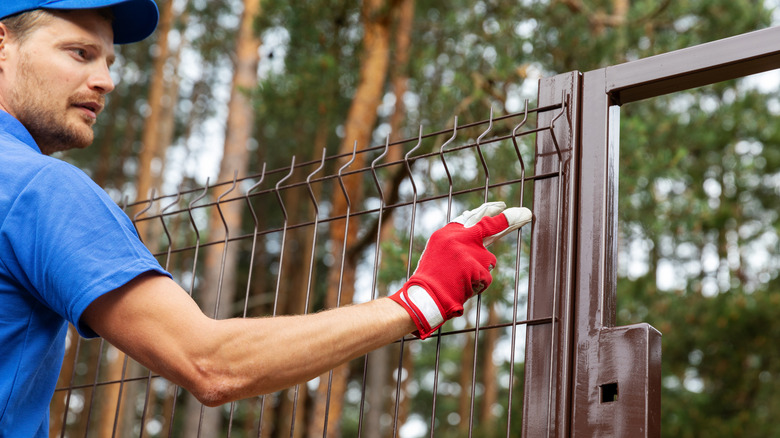The Downsides To Metal Fences You'll Wish You Knew Before Installing
There's a lot of planning involved during property construction or renovation, and one choice you can't afford to wing is your fencing material. You have to consider a material that will not only enhance your property's visual appeal but also maximize privacy and security. Among the many options available, metal fences are known to potentially increase the value of your home. Before you start eyeing metal fences with all their perks, though, you should be aware of a few potential downsides. They are sensitive to temperature changes and can conduct unwanted electricity. They're also difficult and expensive to install and maintain, they're not well-suited for privacy, and they're not the most environmentally friendly choice.
The first drawback to metal fences has to do with the material itself. Remember those science lessons on metal and how it's a good conductor of electricity? Well, this isn't always ideal, as it also means that fences made from metal can pose a safety hazard. If they accidentally come into contact with a live wire — or with water that has — the entire structure could become electrified, posing serious threats to safety. In addition to their conductivity, metal fences are sensitive to temperature changes. When the temperature is warmer, these fences become too hot to touch, and in the colder seasons, they can become cold enough to cause cold burns. While adults might be cautious enough to avoid injuries, pets and children could easily be hurt if they come into contact with the fence during periods of extreme cold or heat.
Cost, installation, and maintenance of metal fences can cause headaches
Another significant disadvantage of metal fences is their high initial cost compared to other options like wood and vinyl. The average cost of a linear foot of wood fencing is between $5 to $20, and vinyl goes for $20 to $40. Metal, though, tops the list at $30 to $50, and the weight of metal fences can also add to their shipping and handling costs. Metal fences are also difficult to install. It's a complicated process that requires specialized tools, not well-suited to a DIY project — so if you're considering building a perfect fence yourself, you might want to consider letting an expert handle it.
Additionally, metal fences are prone to corrosion over time due to exposure to the elements. If you live in an area with high humidity and salty air, this risk increases, and excessive corrosion can lead to further structural issues. In order to prevent corrosion, metal fences require regular maintenance. Not only will you need to pay out of pocket for materials such as rust-proof spray paint on a regular basis, but you'll also need to dedicate a chunk of your time and effort to inspecting your fence for damage and performing routine maintenance. Failing to do these tasks can negatively impact the lifespan of your metal fence, and if it gets to the point that repairs are needed, you'll run into another issue: Metal fences can present logistical challenges during repair which can result in higher labor costs.
Metal fences aren't great for the environment, or your privacy
The environmental impact of producing metal fences is also a major concern. While most fencing materials have an impact on the environment to one degree or another, metal fences are particularly detrimental. The extraction process for materials like iron and aluminum can contribute to destroyed natural habitats and polluted water bodies, and processing the extracted metal requires high amounts of energy, contributing to greenhouse gas emissions. Some older fences may also contain small amounts of toxic materials such as lead and chromium. If you're climate-conscious, you should probably consider other unique DIY fence ideas that can be made from repurposed materials.
Finally, metal fences don't offer the same level of privacy as other fencing options. They are typically not designed for this purpose, so if privacy is one of your top priorities, a metal fence probably isn't the way to go. Sticking to wood or vinyl will be your best option — and will also help to bypass some of the other headaches that can come with metal fences.


